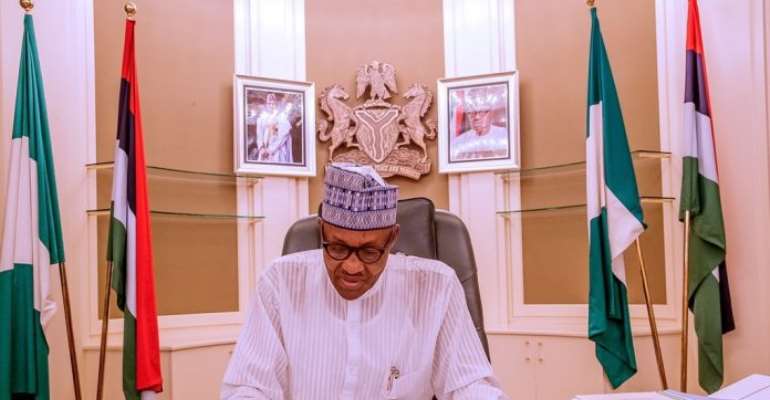Rethinking the Remedy to Nigeria’s Present Security Challenge:

As we grapple with the avalanche of security challenges which has besieged our embattled geographic space, there seems to be no respite in sight as the crisis escalates both in intensity and spread, inflicting massive death toll, excruciating pain, untold suffering and immense social dislocation.
While the current situation is deeply lamentable, the chances of its resolution appear to be endangered by a misleading narrative about the cause of the problem and what needs to be done. By labelling those who have been terrorizing, raping, and butchering unarmed citizens in cold blood (especially in the North and most part of the South) as “bandits”, “unknown gunmen”, etc., attention is diverted from holding armed Fulani herdsmen and Boko Haram liable for these atrocious killings. By extension, it deflects pressure away from President Buhari to call his murderous kinsmen to order.
What is being advertised as the possible solution to the crisis merely reinforces the deceit of what and who is blameworthy for the current anarchic situation. Such misleading suggestions include: a clarion call on the President to speak up and address Nigerians, allocate more funds and recruit more personnel to strengthen the security forces, procure more military hardware to quell the insurgency, seek the intervention of foreign powers or even declare a state of Emergency.
These prescriptions seem laudable at least in theory but they are inherently blind to the sociology of the current crisis of insecurity. Firstly, it ignores the entrenched anomaly of permitting Fulani herdsmen and terrorists to be well-armed with AK-47 and other weapons of assault while defenseless Nigerians of other ethnic extractions are statutorily barred from bearing arms. Secondly, it neglects the arbitrariness of having a national security architecture that is skewed in favour of the North and dominated principally by Fulani oligarchy.
This unhealthy, suffocating ascendancy of a section of the country in both security and political sphere of our national life has created a synergy that propels armed Fulani herdsmen and even Boko Haram insurgents to act with impunity, assured that they have the protection of the Nigerian state and the backing of security officers. Clearly, our quest for a lasting solution to the current challenge of national insecurity will remain elusive so far as the articulation of the problem is half-baked, cosmetic, and disingenuous.
Essentially, Nigeria’s rising insecurity is a symptom of failed political leadership at both federal and state levels. Whereas the incumbent regime of President Buhari campaigned for election on the promise of fixing the economy and tackling insecurity, his performance so far has left a sour taste in the mouth of Nigerians and have portrayed him as “a blind man leading the visually impaired”. Given the astronomical rise in the cost of living occasioned by galloping inflation, oppressive increase of fuel pump price and other taxes, as well the sheer absence of social and economic safety nets, Nigerians have gone from the sublime to the ridiculous in trying to survive. Increasingly, the failure of political leadership, especially at the federal level, has deepened the feeling of disorientation, alienation, and antipathy towards an uncaring, undemocratic, nepotistic Centre. Herein lies the impetus for the vociferous, separatist agitations by centrifugal forces threatening to tear the country apart.
Beyond the pretensions of the government, the current security crisis has exposed the futility of operating a centralized security structure in the context of a pluralistic federation with diverse ethnicity, culture, and religion. Restructuring the polity and decentralizing the country’s security system is a sure-footed response in resolving the prevailing quagmire. However, the current political leadership remains inelegant and defiant, preferring to pay leap service to popular agitations for systemic restructuring. This defiance is inspired unarguably by the fact that the current lopsided, undemocratic, unproductive, highly centralized structure favors the parochial interest of Fulani oligarchy and the parasitic elite.
Rather that voting more funds for security which will be squandered by top echelon of the country’s political and security heads, or procuring more equipment that will be controlled by uniformed Fulani officers and deployed as a shield for armed Fulani herdsmen, how about articulating a viable framework for introduction of state police to help each state grapple with the menace of wanton killings by Fulani herdsmen and localized crimes? The situation in Benue, Niger, Enugu, Ebonyi, Imo and elsewhere amply dramatizes the hopelessness of policing an endangered State or Local Government by relying on a distant, politicized, and unresponsive Federal security apparatus.
The crisis of insecurity across the length and breadth of Nigeria is profoundly real; the citizens are at their wits’ end and do not expect their paralytic government to continue to play the ostrich. President Buhari’s non-performance, passivity, and failure to rise beyond sectarian bias have become part of our crisis of insecurity – if not the major catalyst. The time for him to act is now, lest Nigerians will be compelled to declare a state of emergency on Mr. President!!
